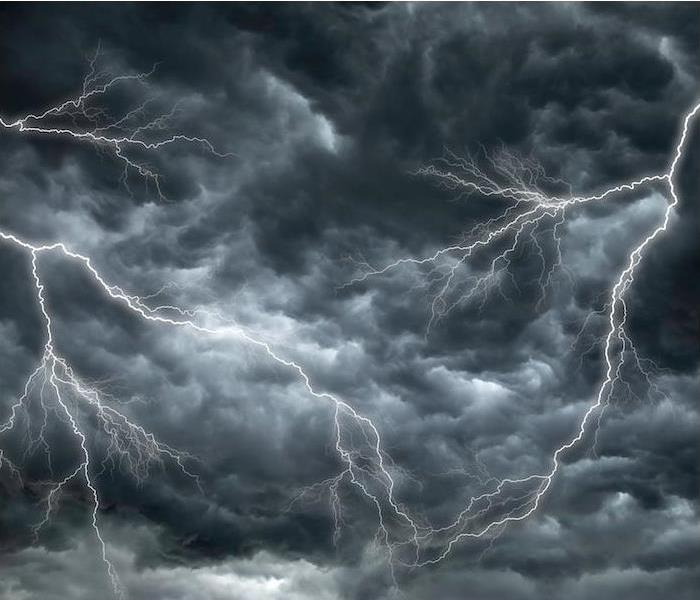The Basics About Lightning and Thunderstorms | SERVPRO® of La Puente/City of Industry West
9/24/2019 (Permalink)
Thunderstorm damage is not always exclusively caused by flooding or high winds. Lightning strikes can pose real dangers as well, in more ways than one.
Every storm is electrically charged, meaning they all have the potential to create lightning. With lightning bolts reaching upward of 500,000 degrees, they can be extremely dangerous and it is important to stay informed.
What Is Lightning?
All thunderstorms carry electrical charges, and lightning is a physical display of that charge, which either strikes across the clouds or toward the ground.
Because the air is a poor conductor, lightning will typically route through an object on its way to the ground in order to experience less resistance. If this object is a building, it can travel through waterways or wiring paths within the structure.
How Does Lightning Cause Damage to a Home?
To protect your house from lightning damage, it is important to know what types of damage it can cause to a home:
Lightning can start fires. When lightning strikes a building, it creates a high risk for fire both due to its temperature and electrical charge. The heat from lightning can cause a fire to start on impact, but it can also damage electrical wires and lead to fires later on as well.
Lightning can damage appliances. Lightning will typically travel through a home’s electrical wiring and can transfer its charge through the wires as well. Any item plugged into the wall can be ruined in a power surge, which is why it’s important to use surge protectors.
Lightning can create shock waves. In the clouds, shock waves are known as thunder, but they can do serious damage once they reach the ground. They are powerful enough to cause foundations to explode and windows to break near a lightning strike site.
If your home has been affected by storm damages or lightning-related fires, give us a call today! (626)330-1027. We are experts in damage cleanup and can restore your damage quickly, "Like it never even happened".




 24/7 Emergency Service
24/7 Emergency Service
